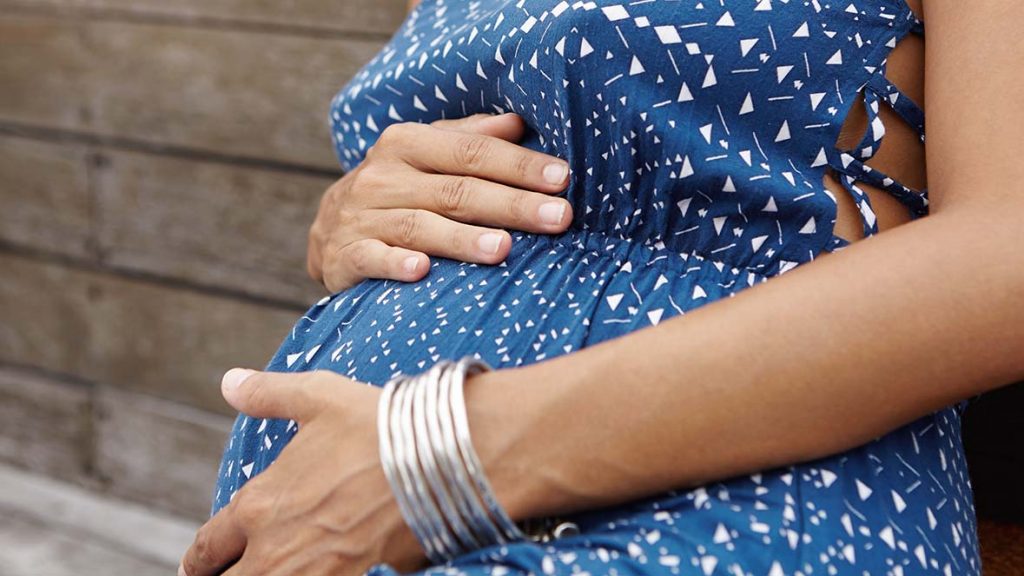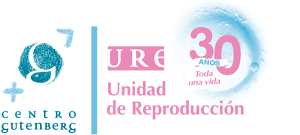Recurrent embryo implantation failure in assisted reproduction treatment: Is there a solution?

Human reproduction is a very complex process: it involves several stages, all of which need to go as planned, but that sometimes don’t turn out as we had hoped.
An example? A couple undergoing assisted reproduction treatment, specifically in Vitro Fertilisation, transfers very good quality embryos to an endometrium which appears to be normal, but they don’t achieve a pregnancy. When this situation repeats itself over the course of at least two cycles we can start to talk about implantation failure.
Is this the first time you’ve heard of implantation failure? Don’t worry: in this article we’ll thoroughly explain to you what embryo implantation is and why, on occasion, we encounter this problem and what some possible solutions are.
What is embryo implantation?
Embryo implantation is a molecular-biological process through which an embryo attaches to and invades the endometrium, or the tissue that lines the uterine cavity in women.
Once implantation has taken place, the endometrium is where the embryo will develop during the nine months of pregnancy.
What makes embryo implantation possible?
Several factors are necessary in order for embryo implantation to take place and so that implantation failure doesn’t occur. Firstly, we need a good quality embryo that has developed well. Additionally, it is important that the endometrium has grown and matured properly. Finally, the embryo and endometrium must correctly coordinate and communicate with each other.
When and how embryo implantation occurs
Once an egg has been fertilised in the Fallopian tube, the early embryo begins the process of cell division and is transported by the tube toward the uterine cavity where it will arrive on the third or fourth day of development.
Then implantation starts taking place around the sixth day of embryo development and ends on day thirteen approximately. The exact moment at which this process should or can begin is known as the “implantation window”, and can range from day two to day seven post-ovulation.
When embryo implantation failure occurs
As we said at the beginning of this article, we can start to talk about implantation failure once a patient has undergone at least two assisted reproduction treatment cycles, ‑with good quality embryos and a normal endometrium‑, if a pregnancy has not been achieved.
The causes of implantation failure can be attributed to the uterus or to the embryo. This means that there could be a problem which is preventing the embryo from properly continuing its development, or a uterine factor which is stopping implantation from taking place.
What to do to achieve a pregnancy in cases of embryo implantation failure
Patients with embryo implantation failure generally present complex cases, meaning it is always advisable to re-evaluate their situation and diagnosis to look for an explanation as to why their treatments haven’t been successful, or something that may have been overlooked during the initial assessment.
To reassess a patient’s case, the medical team must review potential abnormalities regarding uterine anatomy such as submucosal fibroids, endometrial polyps, adhesions, etc. The best way to evaluate the anatomy of the uterus is by performing a diagnostic hysteroscopy, a procedure during which issues are generally encountered in up to ten percent of cases.
In terms of the female, certain factors must be ruled out such as thrombophilia, endocrine, metabolic and immune issues, as these types of problems could lead to embryo implantation failure. You must keep in mind that it is possible to achieve a pregnancy if given the proper treatment.
With regards to causes that affect the embryos, it is advisable to look into potential abnormalities on the chromosomes of both the male and female through a karyotyping analysis. More complex abnormalities in males can also be studied through sperm samples, such as the sperm FISH analysis and the sperm DNA fragmentation test performed on the spermatozoids.
There are times, however, when it is not possible to find a reason that explains why embryo implantation is failing to take place. In these instances, the way patient cases are handled or the recommendations given will depend upon each clinic’s experience as well as the couple’s particular case.
When a cause for implantation failure is detected, the treatment given will depend on the patient’s diagnosis. This means that the doctor will specifically treat the problem that has been identified and the patients will be advised to undergo a new cycle of in Vitro Fertilisation.
Embryo implantation failure affects between ten and fifteen percent of couples undergoing in Vitro Fertilisation treatment. However, you need to keep in mind that by using diagnostic tools and current therapies it is possible to achieve a viable pregnancy that develops as expected in over ninety percent of couples who undergo treatment at assisted reproduction clinics.

So… don’t think twice! Come talk to us if you think you might have an issue that needs to be addressed! At URE Centro Gutenberg we’ll study your case and will recommend the best options so that you can fulfill your desire to become a parent. Remember that your first consultation with us is completely cost‑free.
You can request an appointment with URE Centro Gutenberg online, or by calling us on 0034 952 122 565.

